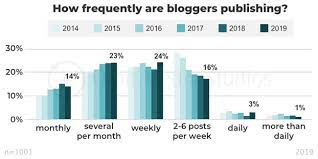7 Tips to Boost Your Organic Traffic Through the Roof
7 Tips to Boost Your Organic Traffic Through the Roof
Are you looking for ways to increase your organic website traffic? If so, then you’ve come to the right place! In this blog post, I’ll be sharing 7 simple tips that will help you get more organic traffic to your website. From optimizing your adsettings to creating backlinks, these tips are sure to help boost your organic traffic through the roof!
1) Research Keywords
Having the right keywords is essential to getting organic traffic to your website. It’s important to do keyword research so you know what phrases and words people are using when they search for the kind of content you provide.
When doing keyword research, you want to consider both broad terms (e.g. “website design”) and more specific long-tail keywords (e.g. “website design services for small businesses”). Doing this research can help you find the most relevant keywords that will bring in the right kind of traffic and increase your organic search engine ranking.
You can use a keyword research tool to help identify the best keywords to use. There are many free and paid keyword research tools available, such as Google Adwords Keyword Planner, Keyword Tool, and Wordtracker. These tools will help you find related keywords and estimate how much competition there is for each one.
Once you have identified a list of relevant keywords, you should create content that contains those keywords. This will make your website more visible to search engines, resulting in more organic traffic. You can also use these keywords to optimize your webpages and meta tags so they appear higher in the search engine results pages (SERPs).
By doing some keyword research and using the right keywords in your website content, you can increase the amount of organic traffic your website receives. When you're ready to take your keyword research to the next level, try using an adword platform like Google Ads. With Google Ads, you can access their Keyword Planner, which allows you to track keyword trends over time and get data on keyword volumes and cost per click (CPC). The data you get from the Keyword Planner helps you determine which keywords are worth targeting and which ones will generate more clicks for your site. Additionally, the Keyword Planner allows you to set up keyword groups and adjust bids based on these groups. This way, you can better control where your budget goes and optimize bids accordingly. With Google Ads and the Keyword Planner, it's easy to pinpoint which keywords will be the most beneficial for bringing in organic traffic.
2) Improve Website Content
One of the best methods to get organic traffic to your website is to improve your website content. Quality content is key in order to draw potential customers and engage them with what you have to offer. Having relevant, helpful, and accurate content on your website will not only keep visitors interested in what you have to say, but it will also lead to higher search engine rankings.
When creating content for your website, it’s important to keep it interesting and informative. Consider what your target audience is looking for and create content that’s tailored to their interests. Make sure to incorporate keywords related to your business or industry within the content, as this can help search engines understand the purpose of your site and increase its visibility. Additionally, make sure your website is up-to-date, accurate, and doesn’t contain any grammar or spelling errors.
Creating content isn’t the only way to improve your website content; you should also strive to keep your content fresh and engaging. Updating existing content regularly is a great way to ensure that visitors are getting the latest information about your business or industry. You could also consider adding multimedia elements such as videos, images, or infographics that can help attract visitors and keep them engaged.
By improving the quality and relevance of your website content, you can boost organic traffic and bring more visitors to your site. When done properly, quality content can help draw new customers, increase conversions, and build trust with potential customers. Link building is another method you can use to increase organic traffic. This involves placing links to your website from other high-quality websites and directories. This can help both users and search engine robots find your website easily. Social media can be used effectively to drive targeted traffic to your website. Use social media platforms such as Facebook, Twitter, LinkedIn, YouTube, etc., to post updates related to your business, products, services, and news stories. This will help you reach out to potential customers who may be interested in what you have to offer. Leveraging user reviews is another effective method to generate organic traffic. Positive reviews posted on review websites and social media can help attract new visitors who want to learn more about your products or services. It’s also important to use SEO techniques when optimizing your website content so that it ranks well in search results. By using these strategies together, you can drive significant amounts of organic traffic to your website.
3) Increase Social Shares
Social media plays an important role in driving organic traffic to your website. Sharing content on popular social networks can help spread the word about your business and attract more visitors to your site.
The key to increasing social shares is to create content that is both engaging and sharable. You can do this by creating blog posts, infographics, videos, podcasts, or other visual content that people are likely to share with their networks.
You should also use social media to interact with customers and potential customers. Responding to questions and comments, sharing valuable content, and having conversations will help build relationships and trust with your audience.
Additionally, you should be sure to optimize your social media accounts for search engines by including relevant keywords in your profile descriptions and post captions. This will help ensure that your posts appear in search engine results and attract more visitors.
Finally, be sure to track the performance of your posts using tools like Google Analytics or Sprout Social. This will help you identify which types of content generate the most engagement and determine the best times to post for maximum reach.
4) Optimize Webpages for Rankings
One of the most important methods of increasing organic traffic to your website is by optimizing your webpages for rankings. This involves using targeted keywords that are related to your niche and strategically placing them in your content and page titles. Additionally, using keywords in image alt-tags and meta descriptions can also help improve rankings. Additionally, make sure you include relevant links to other pages on your site, as this will also boost search engine rankings.
Make sure you use headings and subheadings in your content, as this helps users scan through the information quickly. Additionally, you can use bullet points or numbered lists to make it easier to read. Longer content is often more beneficial for rankings, so aim to include 300 words or more on each page. Finally, make sure you’re utilizing HTML tags such as H1 and H2 tags in your headings and subheadings.
By optimizing your webpages for rankings, you can drastically increase your organic traffic over time. Take the time to research keywords related to your niche and find ways to incorporate them into your content. Additionally, pay attention to the structure and formatting of your page as this can have a huge impact on rankings. With some careful optimization, you can see major improvements in organic traffic to your website.
5) Publish Monthly Blog Posts
Creating regular blog posts is one of the most effective ways to generate organic traffic to your website. Not only do new blog posts help attract more visitors, but they can also help improve your search engine rankings and position your website as a thought leader in your industry.
When you create monthly blog posts, make sure to research topics that are relevant to your industry, target the right keywords, and optimize for SEO. Make sure to keep your posts updated with the latest trends and provide accurate information. Also, if you want to increase engagement and shares, add visuals like images and videos, add polls or surveys, and link back to your other content.
In addition to researching topics and optimizing for SEO, you should promote your content on social media and other channels. Share it with your followers, comment on related posts, and send out newsletters to your subscribers. This will help you reach a wider audience and drive organic traffic to your website.
Finally, be sure to track the performance of your blog posts. Monitor the analytics of each post and make adjustments if necessary. Use the data you gather to identify what works and what doesn’t so you can adjust your strategy accordingly.
By following these tips, you can maximize the impact of your blog posts and drive organic traffic to your website month after month.
6) Increase Page Load Speed
One of the most important factors in getting organic traffic to your website is to ensure that it loads quickly and efficiently. This means that you need to take a good look at the speed of your website and see what can be done to improve it. There are several methods that you can employ to increase the page load speed of your website.
First, make sure you compress large files such as images and videos. Compressing these files will reduce their size and make them quicker to download for visitors. Additionally, minify your code such as HTML, CSS, and JavaScript, which reduces the file size by removing unnecessary characters and formatting.
Second, use a content delivery network (CDN) to distribute static content across multiple locations. This helps to improve the page load speed by reducing the distance between visitors and your content.
Third, enable caching on your website. Caching helps store frequently accessed content and makes it easier for visitors to quickly access what they need. It also reduces the amount of data that has to be loaded each time a page is accessed.
Finally, take the time to optimize your website’s database. This may include making changes to the structure, cleaning out obsolete data, and using indexes to improve query performance.
By following these tips, you can improve the page load speed of your website and ensure that visitors have a better experience when they visit it.
7) Implement Google Authorship
Google Authorship is a way for webmasters to link their content to their Google+ profiles, giving authorship to their work and building a reputation as an expert in their field. Not only does this help with organic traffic, it also builds credibility and trust in your readers.
Google Authorship allows you to showcase your profile picture, name, and other information next to your content when it appears in search results. This helps searchers identify content created by a trusted source, boosting the chances of them clicking through to your website.
To set up Google Authorship, you must first link your website to your Google+ profile. Then, you need to add a link back to your profile from your website. Finally, verify your authorship by adding the URL of your Google+ profile page to a verified authorship page on your website.
Once you have implemented Google Authorship, you can track your organic traffic and view statistics for your Google+ profile page. You can also use the information from this tracking to optimize the content you produce and ensure that it is seen by more people.
By following these steps, you can ensure that Google recognizes you as an author of your content and help get more organic traffic to your website.








0 Response to "7 Tips to Boost Your Organic Traffic Through the Roof"
Post a Comment